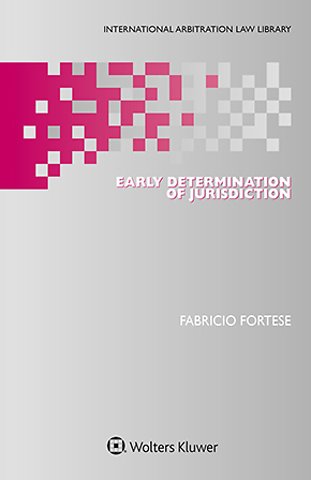Early Determination of Jurisdiction
Samenvatting
International Arbitration Law Library#69
Early Determination of Jurisdiction, which focuses on Article 8(1) of the UNCITRAL Model Law on International Commercial Arbitration, thoroughly examines the pivotal issue of whether national courts should (or could) conclusively settle jurisdictional disputes before or after the arbitrators have determined jurisdiction. In other words, the question of when a court should exercise its authority with conclusive effects. The interpretation and application of the competence-competence principle are not uniform across jurisdictions. Conflicting approaches - to the extent, effects, and consequences of permitting an arbitral tribunal to decide on its own jurisdiction and the proper timing for judicial involvement - rest upon significant theoretical and policy concerns that have practical implications.
What's in this book:
The analysis covers the following salient issues and aspects:
- prima facie versus plenary or full standard of judicial review;
- obligations and powers the law affords judges in the presence of an (even putative) arbitration agreement;
- cases highlighting the controversies in interpreting and applying the Model Law's concepts, principles, and rules; and
- detailed analysis of the text of the Model Law, including its drafting history.
Article 8(1) of the Model Law is analysed according to its interplay with other provisions of the same instrument and the New York Convention.
How this will help you:
As a nuanced, deeply informed approach to interpreting national arbitration statutes that adopt the UNCITRAL Model Law, this book will help practitioners and judges approach judicial disputes over arbitral jurisdiction with full awareness of applicable rules and principles in an arbitration-friendly fashion. It provides matchless guidance through the intricacies of early determination of jurisdiction by balancing the legitimacy, efficacy, and efficiency of arbitration. For academics and policymakers, it will contribute to an ongoing paradigm shift away from state law and methodological nationalism towards transnational legal pluralism.
Author:
Fabricio Fortese
Specificaties
Inhoudsopgave
CHAPTER 1
Introduction
CHAPTER 2
Harmonisation and Unification of Arbitration Laws
CHAPTER 3
A Matter of Interpretation
CHAPTER 4
Court Interpretation and Application of the Model Law
CHAPTER 5
The Language of Article 8 of the Model Law
CHAPTER 6
Legal Context
CHAPTER 7
Purpose: The Effective and Efficient Resolution of Disputes
CHAPTER 8
Conclusions
Table of Court Decisions
Index







